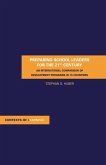The global economic crisis has required governments across the globe to reconsider their spending priorities. It is within this demanding economic context that higher education systems have been steadily restructured with in many ways the English model in the vanguard of change. This book focuses in particular upon the policy of removing almost entirely public support for the payment of student fees. This has emerged from a steady process of change, which has broad political support and is underwritten by the idea that higher education is now seen more as a private than a public, good. As this shift has occurred (not a new innovation but rather a return to what once prevailed as more of a market in English higher education) so the relationship between government and the higher education has evolved with the latter now attempting to steer the development of the system through a state-regulated market. The book has a strong comparative dimension that draws upon US higher education to illustrate both the possible advantages and potential hazards to the marketization strategy. It concludes that any such strategy needs to be accompanied by state regulation if it is to function effectively, particularly to stimulate price competition, encourage innovation from new entrants, and provide consumer protection for students paying high fees.
Dieser Download kann aus rechtlichen Gründen nur mit Rechnungsadresse in A, B, BG, CY, CZ, D, DK, EW, E, FIN, F, GR, HR, H, IRL, I, LT, L, LR, M, NL, PL, P, R, S, SLO, SK ausgeliefert werden.
Hinweis: Dieser Artikel kann nur an eine deutsche Lieferadresse ausgeliefert werden.









